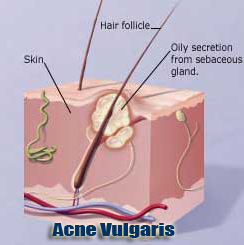Histoplasmosis is an inflammatory lung infection that usually occurs when a human has had contact with bird or bat droppings. Histoplasmosis is similar in symptoms to COVID-19, such as shortness of breath, fever, chest pain, and coughing. Some people who are at high-risk for histoplasmosis may also be concerned that they have contracted COVID-19. Though unlike COVID-19, histoplasmosis is not contagious.
Risks
Though the fungus is known throughout the central and eastern United States, Africa, Asia, and Australia, it is possible to contract it in other areas. Histoplasma capsulatum is a type of fungus found in soil or animal waste, such as bird feces and bat guano. Anyone who farms animals or crops, pest control workers, or has been in contact with these factors may have been exposed to this fungus. Usually, histoplasmosis is benign, but those who have weakened immune systems may have more severe symptoms.
Symptoms
People can experience a variety of symptoms. Some symptoms include:
- Fever
- Shortness of breath
- Cough
- Chest pain
Flu-like symptoms can also be experienced, such as:
- Chills
- Aches
- Lack of energy
Severe Symptoms
It only takes most people several days to two weeks to start feeling better. Those with low functioning immune systems may have a more difficult time overcoming the infection. If you begin to develop thick mucus, cough up blood, or experience chest tightness, it’s time to see your doctor. The fungus is a low risk for many healthy individuals, but if left untreated as symptoms worsen, it could be lethal.
Disseminated Histoplasmosis
Though very rare, sometimes the fungus can travel to other parts of the body, rather than just the lungs. If you suspect that you are ill and seeing little signs of progress, it is imperative to seek treatment. Disseminated histoplasmosis occurs when the fungus infects other organs. When this happens, it can develop into a severe problem that may lead to hospitalization as it is lethal. Symptoms of disseminated histoplasmosis include ulcers, gastrointestinal bleeding, swollen organs, pain, and fatigue.
Treatment
Most cases do not require medical treatment, as those who experience exposure to the fungus do not often feel ill. Those who symptoms progress or worsen should seek help from a medical professional. Treatment is based on severity and the individual’s medical history. In most cases, antifungal medication will be prescribed, such as amphotericin or itraconazole. Sometimes depending on the severity of the symptoms, treatment can last a year or longer.
Prevention
If you work in pest control, gardening, landscape, fieldwork, and experience low immunity, it may be in your best interest to find a new occupation. Histoplasmosis can be contracted a second time as fungus exposure is not similar to a viral infection.
Anyone can experience it, but living in a high-risk area may make you more prone to the illness. If you have had it once and it developed into a more severe illness, odds are you will probably want to limit your exposure where you can. Other tips to prevent the disease is wearing a mask when working with soil or bats and birds. Spraying soil with water before working with it may help as this fungus likes to grow in dry places. When working with animals, make sure that the conditions, for the animal’s health and your own, are as sanitary as possible. The best course of action is to limit all exposure to the fungus.








